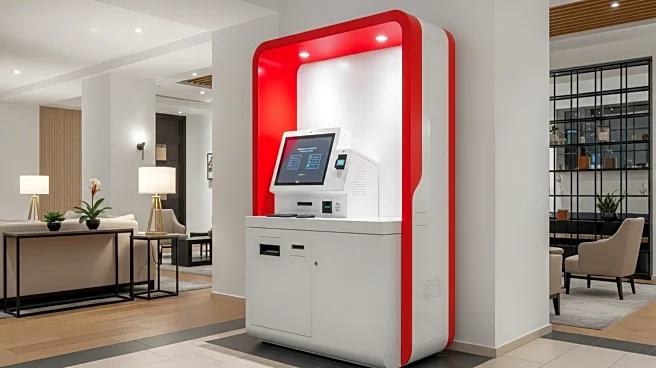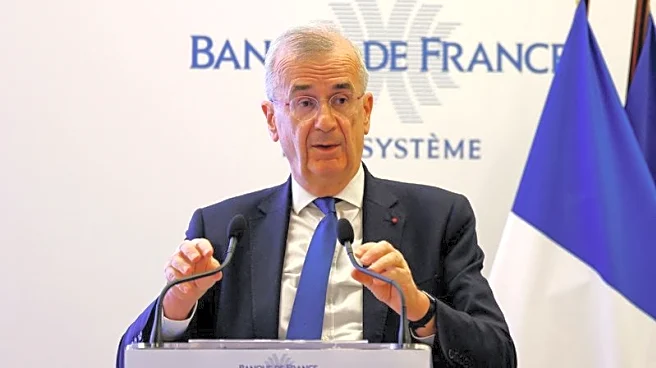What is the story about?
What's Happening?
Vermilion Zhou Design Group has unveiled a new model for economy hotels called Hi Inn Self-Service, which aims to redefine the traditional budget hotel experience. This innovative approach focuses on providing guests with affordability, independence, and eco-conscious choices. The Hi Inn Self-Service model emphasizes a fully self-service, eco-friendly, and reliably affordable hospitality solution. The design incorporates modular elements such as wardrobe walls, wash walls, dining corners, and laundry zones, which facilitate efficient construction and maintenance. The hotel’s design language is minimalist yet inviting, allowing guests to navigate their stay independently without staff intervention. Sustainability is a key component, with over 80 percent of materials being recyclable, ensuring efficient builds and potential for reuse.
Why It's Important?
The introduction of the Hi Inn Self-Service model is significant as it addresses the evolving demands of travelers who prioritize cost efficiency, flexibility, and sustainability. By offering a self-service experience, the model reduces operational costs and enhances guest autonomy, which is increasingly valued in the hospitality industry. The focus on eco-friendly practices aligns with global trends towards sustainability, appealing to environmentally conscious consumers. This model could set a new standard for economy hotels, influencing how budget accommodations are designed and operated. It presents an opportunity for the hospitality industry to innovate and adapt to changing consumer preferences, potentially leading to broader adoption of similar models.
What's Next?
As the Hi Inn Self-Service model gains traction, it may inspire other hotel chains to adopt similar strategies, emphasizing self-service and sustainability. The success of this model could lead to further innovations in hotel design and operations, with a focus on modular construction and eco-friendly practices. Stakeholders in the hospitality industry, including hotel operators and designers, may explore partnerships or collaborations to implement these concepts. Additionally, the model’s emphasis on guest autonomy could influence customer service approaches, with technology playing a larger role in facilitating self-service experiences.
Beyond the Headlines
The Hi Inn Self-Service model highlights a shift towards more sustainable and efficient hospitality solutions, which could have long-term implications for the industry. The modular design approach not only accelerates construction but also allows for easy upgrades and maintenance, potentially reducing costs and environmental impact. This model challenges traditional notions of hospitality by prioritizing guest independence and eco-consciousness, which could lead to broader cultural shifts in how travelers perceive and interact with budget accommodations. As sustainability becomes increasingly important, this model may encourage other sectors to adopt similar practices, promoting a more sustainable future.

















